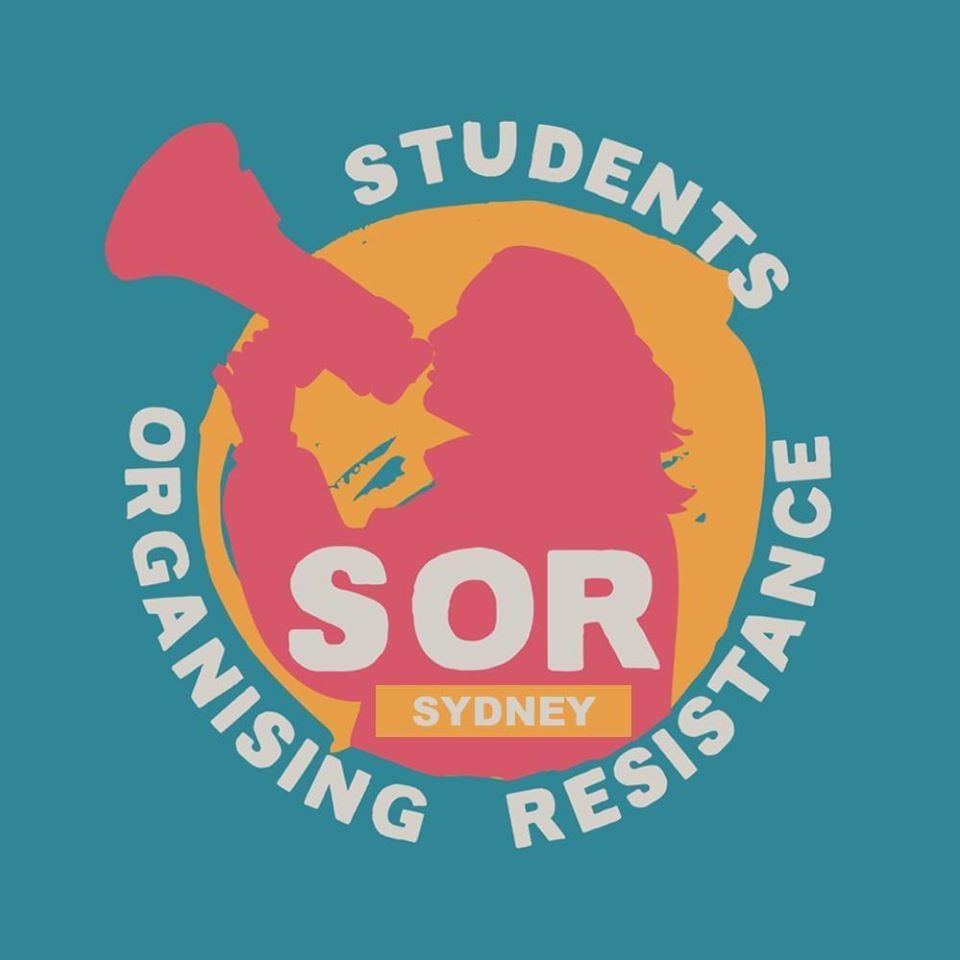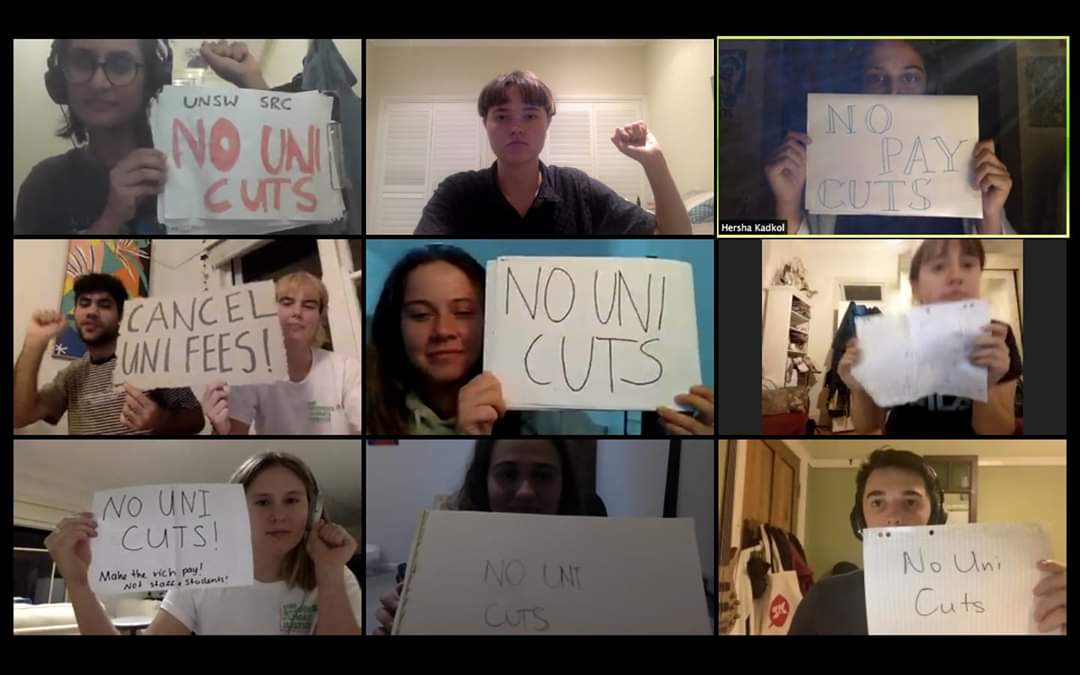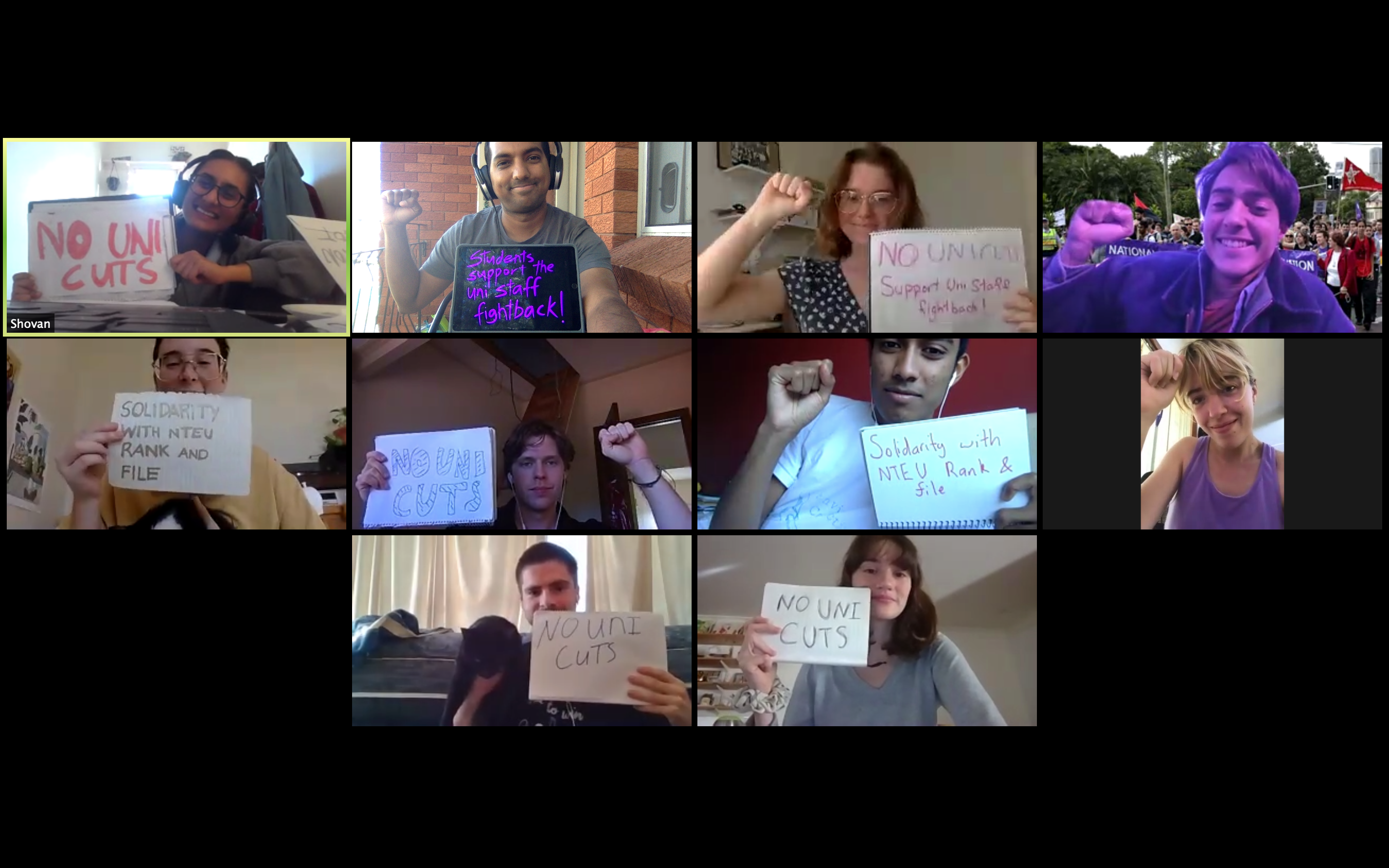No COVID-19 Uni Cuts: An Interview With Students Organising Resistance’s Shovan Bhattarai

The COVID-19 lockdown has resulted in a huge economic downturn for Australian universities caused by the closure of borders, the loss of international student revenue and the forced shutdown of campuses.
Due to its heavy reliance on students from abroad tertiary education has been one of the hardest hit sectors of the Australian economy since the global pandemic struck.
This means that tertiary education is now facing some of the harshest cuts it has in decades. And with casual teaching staff in Queensland already starting to lose hours in mid-February, it seemed fairly obvious who was going to be making up the shortfall in profits.
Students push back
However, what wasn’t so obvious was the position the National Tertiary Education Union would take when its leadership took a closed-door meeting with Universities Australia on 3 April that included a resolution on potential pay cuts without any prior notification of its general membership.
Needless to say, NTEU members were a touch ticked off when they learnt of the betrayal. And now, in a show of solidarity with their educators, university students are holding a national day of action this Friday, calling for no course cuts or job loses
Sydney Criminal Lawyers spoke to Students Organising Resistance in the Pandemic (SOR) spokesperson Shovan Bhattarai about the secretive negotiations, how the cuts will affect students, and what’s to be expected on the national day of action.

Firstly, the tertiary education sector has been hit hard as a result of the COVID-19 restrictions. Ms Bhattarai, how are the universities holding up during the crisis?
It has been a really big hit to the tertiary education sector. They’re predicting $5 billion in losses, at least.
So far, the question has been one of who’s going to pay the cost of this crisis. And the universities have got an answer in mind, which is they want to make staff and students pay.
Already, Universities Australia have announced they’re looking at possibly 21,000 workers being sacked.
They’ve also announced a whole lot of restructures and mass sackings at a number of universities, which have involved letting go of mainly casual workers. They’ve put a freeze on hiring. And there has been a range of course cuts.
At the University of Tasmania, for example, they’ve announced that the 514 courses that were on offer just a few weeks ago, have now been cut down to 120 courses. So, these changes are big.
Is this linked to the sector’s reliance on international students?
Yes. That’s one of the difficulties at the moment, as for years universities have treated international students like cash cows in order to try and make up some of the shortfall in the lack of public funding they’ve received.
So, international students have been overexploited for decades. And now that those profits aren’t rolling in, they’re looking at making up the shortfall by exploiting staff and students.

Faced with this downturn, the National Tertiary Education Union leadership held a not so well publicised consultation meeting with the management of universities on 3 April. What did this involve?
The NTEU national executive leadership held a meeting with Universities Australia. And what they did at the time was to accept concessions from the get-go.
They accepted concessions would have to be made, along with possible pay cuts, in order to save jobs.
So, they floated things like full time staff taking a reduction to 80 percent working hours, so effectively a 20 percent pay cut. Those sorts of measures.
They went into this meeting with the idea of making concessions in order to save jobs, which is a false dichotomy, because you don’t save jobs by cutting into your pay and conditions. It’s not something that has worked before.
It’s good that there’s been a fightback organised by NTEU rank and file members – firstly, at the University of Sydney, but then around the country.
As you’ve just mentioned, this meeting sparked backlash amongst the NTEU membership. One hundred and fifty members met at RMIT last Thursday in response. What are their grievances with how the union has acted on their behalf?
Some of the grievances raised by the NTEU membership have been regarding the lack of transparency from the national executive leadership who agreed to have these closed-door meetings with university bosses without any consultation with members.
The other key grievance is that their strategy has been about accepting that concessions have to be made instead of fighting for these hard won pay conditions that NTEU members have gained over the past decades.
In fact, they’ve been prepared to write these off without a fight.

SOR has been speaking out as well. How are students likely to be affected if these developments continue in the way that they have been?
Importantly, for students, staff working conditions are our learning conditions. So, any proposed cuts to their working conditions represent students’ quality of education being damaged even further than it already has been.
Increased student to staff ratios lower quality of education. So, that’s why students have an interest in supporting NTEU members’ fightback and their stand against the cuts.
We’ve organised a national day of action for this Friday, which is demanding no uni cuts and no jobs losses for staff.
We’re trying to get governments and some of the university vice chancellors to take on some of the costs of paying for this crisis, instead of putting the burden onto staff and students.
And lastly, Ms Bhattarai, as you’ve just mentioned, SOR, along with a number of other student bodies, is organising a national day of action this Friday 24 April. It will include a 1pm livestream featuring Australian Greens Senator Mehreen Faruqi.
Can you tell us a bit about what the day of action is going to involve?
Students historically have played a massive role in supporting NTEU members’ campaigns in trying to fight for their pay and conditions in the past, because we recognise our common interests.
Unfortunately, as we are in isolation, the activist projects we are capable of doing are somewhat limited. We can’t have big rallies at the universities or anything like that.
For now, we’re doing what we can, which is why we’ve organised this nation day of action on Friday, where we’ll be gathering and taking part in online actions in whatever capacity we can.
So, we will be taking solidarity photos, as well as tuning in to this ZOOM conference at 1 pm and hearing from some speakers, including NTEU members and from politicians.
This will be a chance to do whatever we can to keep the protest culture of university students alive.
We will be standing against the cuts and making a show of it. And when isolation ends, we will be taking some of that momentum back out onto the streets.







